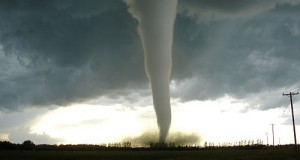Have you ever gone on a trip, only to find that you forgot something important? It seems like that happens on every trip I take. It doesn’t matter if I’m going away overnight or for an extended trip, something, or several somethings, get left behind. It’s not that I’m disorganized; it’s just that there are usually too many things to take care of at the last minute and I can’t get them all done.
If it’s that easy to forget things on a simple business trip or vacation, what’s going to happen if you or I are forced to get out of town – to “bug out” in the event of a natural or man-made disaster? Tensions will be high, we’ll be rushing around to get out and you can be sure that there will be many things that will be forgotten. The big difference, though, is that we won’t be able to just stop in a store and pick them up. Nor will we be able to call a family member and ask them to ship it to us overnight.
Plan it Right
This means that for a bug-out to be successful, it has to be meticulously planned and executed. Anything else could end in disaster. You need to cover every detail you can in your planning, so that when the time comes, you don’t have to think; you can act. This is actually a common strategy employed by emergency planners everywhere. They plan everything out in detail when they have time to think about it, without the stress of the problem. That way, when the time comes, they can just take action.
The problem is that when a crisis hits and the adrenalin is running through your veins, you can’t think clearly; nobody can. Therefore, your plans must be made ahead of time, written out clearly and practiced. That’s the only way that you can be sure that you’ll be ready to do what you need to do.
But there’s another aspect of your survival plan that you need to consider as well — contingency plans for times when your original plan doesn’t work. This is where most people make their biggest mistakes. They have an exquisite plan, but for some reason they can’t put it into effect. That puts them in the same situation as those who don’t have a plan at all. What can do this? Things like:
- Not being at home when the crisis hits
- Other family members not being at home
- Bad weather
- The car doesn’t run
- Roads are blocked
- You have to travel on foot
- You can’t get to your intended retreat
- Problems with your survival equipment
- Equipment missing from your survival bag.
These types of things can totally invalidate your plans in a moment. That’s why you need to plan for them as well. Come up with a solution and add that to your plan.
Plan for the Worst
No bug-out plan should ever be based on ideal conditions. After all, if things were ideal, you wouldn’t need to be getting out of town. But even then, many make plans based upon an ideal starting point. That means everyone is at home and all your equipment is packed and organized, ready to go.
Reality doesn’t work that way. As far as I’m concerned, the only way to start a plan is with the family scattered at their normal activities and the bags not being quite ready. While ideally you should keep your bags packed, what if you had to empty one because the dog threw up on it? That kind of thing can happen, so make checking and loading your bags part of your plan.
New Survival Seed Bank™ Lets You Plant A Full Acre Crisis Garden!
Also, make sure your plan includes an option for abandoning your vehicle, if you have to do that. If your survival plan is part of a mass evacuation, then there’s a good chance that the highways will be choked with stranded motorists. When that happens, you may be stuck abandoning your car and heading out on foot. You should ask yourself:
- How will that change my travel route?
- How can I travel without running into other people?
- How much longer will it take me to get to my retreat?
- What things will I be able to carry and what will I have to abandon?
- Can all my family members travel cross-country? How fast? If they can’t, how do I move them?
Use checklists whenever you can. I love checklists. They make sure that you have something you can fall back on, when you can’t count on your own memory. Actually, I try to avoid counting on my memory for anything. As far as I’m concerned, if it’s not written down, it doesn’t exist.
Practice Makes Perfect
You really don’t know if your plan will work until you’ve tested it. No matter how good a planner you are, testing is the way you validate it. Your test gives you a means of verifying that everyone knows what to do, how to do it and that they have the skills and equipment necessary to do what they’ve said they are going to do.
The good thing is that finding problems on your practice run gives you the opportunity to find solutions for those problems. Maybe you’ll find that your tent has a manufacturing defect in it or that it doesn’t work in high winds. Perhaps your tomahawk doesn’t chop wood as well as you thought. You could even find that you’re allergic to some of the survival food you bought.
Once you find those errors, it’s time to go back to the drawing board and prepare for them — buying new equipment, modifying old. Redesigning your plan to take care of those areas you missed. Then, test it again, until you’re sure that your plan is going to work as you want it to.
What would you add to this story? Share your thoughts in the section below:
What Would You Eat If Supermarket Shelves Were Raided? Read More Here.
 Off The Grid News Better Ideas For Off The Grid Living
Off The Grid News Better Ideas For Off The Grid Living





